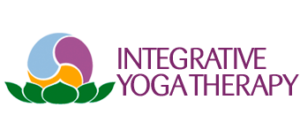The IYT Training Programs

The goal of the Integrative Yoga Therapy Training Programs is to give students an in-depth understanding of yoga as a vehicle for global wellness. The skills introduced in the Integrative Yoga Therapy Training Programs are based on the traditional elements of yoga: posture, breath, mudra, guided imagery, meditation, and deep relaxation. These are complemented with a broad understanding of health and the healing process, both from a yoga perspective and also within the current mind-body health movement.
This vision of healing is not just for the individual or the yoga classroom. The roots of illness are social and cultural, while the effects are planetary. For this reason, the focus of our students is social, cultural, and ecological as well as personal and spiritual. IYT graduates take yoga-based wellness programs into a wide variety of fields, such as hospitals, clinical settings, corporate stress management, special education, senior centers, and mental health programs. By bridging ancient insights and modern wellness, Integrative Yoga Therapy has a vital role to play in the rapidly expanding field of mind-body health and healing and in the healing of individuals, communities, and our planet.
The Yoga Therapy Course offered at Enchanted Mountain Yoga Center in Brazil consists of a 20-day course and is offered to students who have completed a 200-hour yoga teacher training course. This course invites students who wish to work with individuals with health conditions and/or with groups of people with issues such as high blood pressure and diabetes.
Joseph Le Page currently offers “The Art and Science of Yoga Therapy” a 30 hour online course through Inner Peace Yoga Therapy. For information contact Inner Peace at info@innerpeaceyogatherapy.com.

Yoga Therapy Techniques for Working One-on-One
- You’ll learn the methodology to design Yoga Therapy programs in individual sessions, adapting them to the needs of the client, including specific health conditions and imbalances observed in the physical and subtle body.
- You’ll receive a basic understanding of Ayurveda that you can apply according to the unique needs of each individual.
- You’ll also learn how to adequately modify all Yoga tools, including asana, pranayama, mudras, Yoga nidra and meditation to suit the needs of each individual.
Kinesiology
- The study of balanced movements in the joints to develop Yoga practices that restore healthy movement to each individual.
- Presentation of Yoga tools indicated to correct postural misalignments and for the recovery from musculo-skeletal injuries.
- You will also study techniques for a safe Yoga practice to protect the joints before problems start to develop.

Light on Yoga: Body Systems
- Learn the foundations of anatomy and physiology of the body’s systems through the light of Yoga to understand how Yoga and it’s tools, including asana, pranayama, mudras, bandha and meditation can be applied to reestablish balance and health in each of the body’s systems.
- You’ll also learn how to construct an anamnesis in individual sessions of the imbalances of each system through the light of Yoga.
- Study the most common imbalances and health conditions of each body system through the Yoga perspective, developing Yoga Therapy strategies to reestablish balance, in accordance with the specific needs of the Yoga Therapy program participants.
Philosophy and Psychology in Yoga Therapy
Study of Yoga philosophy and how it offers models for integral healing of the individual. This study includes understanding of Samkhya philosophy as the basis of Yoga Therapy, aligned with the practices of the Yoga Sutras of Patanjali
Tantra and Hatha Yoga will also be explored, including the science of the chakras, which serve as models for the practice of Yoga Therapy.
Understanding of communication techniques with the student during the Yoga Therapy session in order to facilitate the process of psychological, emotional and spiritual transformation.
Preparation of a Yoga Therapy project for an individual session
The participants will develop an individual session to be acted out in pairs. Thus, participants leave the course with the tools for integrated Yoga Therapy in practice.
Yoga Therapist
This course will allow the Yoga Therapist to create Yoga classes with specific themes, including classes that benefit the various systems of the body (ex: respiratory, endocrine, reproductive, etc) and specific musculoskeletal areas (ex: lumbar, knee, shoulders, etc.)
This course will qualify the Yoga Therapist to develop programs for groups with specific health conditions, such as circulatory, respiratory and immunological.
It will also qualify the Yoga Therapist to work in individual sessions, offering practices designed to balance all aspects of the individual: physical, subtle, emotional and spiritual.
The Yoga Therapist may act together with health ministers at the federal, state and municipal levels, offering the Healthy Heart Program.

